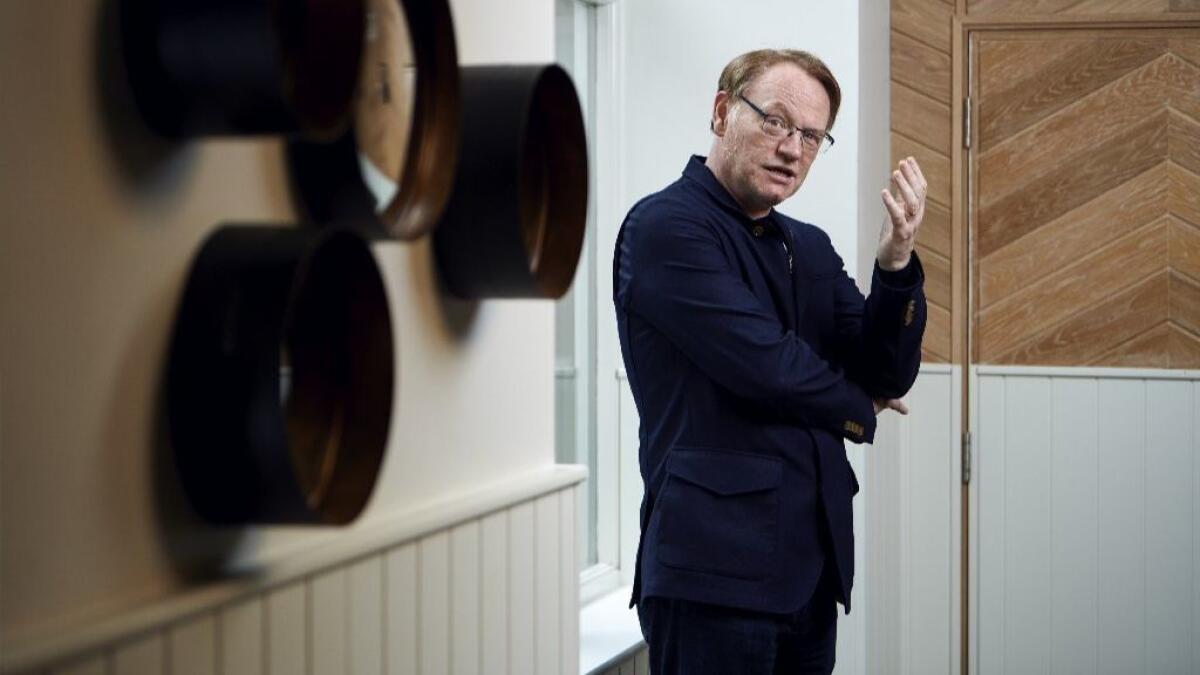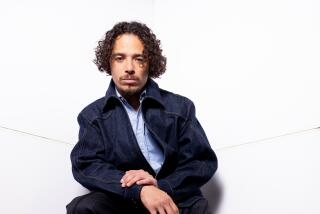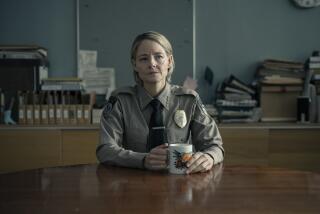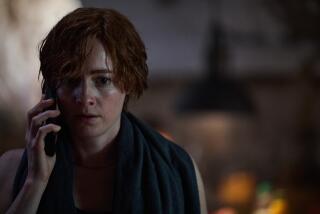In ‘Terror,’ Jared Harris faces down the elements, a killer creature and, perhaps worst of all, his fellow man

Reporting from London — For Jared Harris, star of AMC’s “The Terror,” horror doesn’t have to involve a serial killer or supernatural beings. The 10-episode limited series, which follows the crews of two Royal Navy ships that become stuck in the ice while looking for the Northwest Passage, reflects a different sort of fear.
“It’s about human horror,” Harris says. “The scariest monsters are human beings and what we will do to each other. The monster in this show is a catalyst in a way, destroying whatever false ideas of civility and society these people are trying to hang on to as the predicament gets worse and worse.”
Speaking of civility, it is only right to alert readers that — even though the series has ended — there are huge plot spoilers from here on in.
The dynamic of the men on the two ships, HMS Erebus and HMS Terror, shifts over the course of the story, which is based on Dan Simmons’ 2007 novel (as well as historical fact). The crew is up against the natural elements, as well as a large bear-like creature that begins to attack them. But ultimately it’s about the lengths someone will go to in order to not die. The first episode unfolds very slowly, a tonal choice that struck Harris immediately.
WATCH: Video Q&A’s from this season’s hottest contenders »
“I got sent the script and read it and loved it,” he says. “The questions I had were about the subtlety and restraint of the first episode. There are 10 — does this just become a story of people screaming and running from a monster or does it stay like this? And [the showrunners] said, ‘No, the monster is only an element of it, and it’s more of a metaphor. We’re interested in this dynamic of people and how they screw up each other’s chances of survival.’ ”
The story takes place over several years, with large time jumps between some episodes, and Harris’ Francis Crozier transforms into a reluctant leader over the course of the series, battling self-doubt and alcoholism along the way. Harris was careful to portray Crozier’s choices in a way that would make sense down the line, constantly asking questions about the character’s motives and decisions. In the end, he’s the sole survivor, but it’s a bittersweet conclusion.
“Why doesn’t he go towards full resolution once he’s survived?” the actor asks. “Why does he stay with [the native people]? Well, my answer was ‘He didn’t save anybody.’ He fails to save any of them. It would shame him to show up and just say, ‘I made it, but no one else did.’ Crozier’s journey is somebody who’s felt the cards were stacked against him and who was overlooked. At the end of the story, there’s no recognition for him, there’s no redemption for him.”
The challenges of the role included learning to speak Inuit, which Harris had to do extensively, and pulling off the intense finale episode, which involved feigning cannibalism and fighting a CGI bear while attached to an actual chain. The series, shot over six months, was also filmed in Budapest and Croatia with no real ice in sight. The arctic landscape, a major player in the story line, was created on sound stages and with digital effects later.
Still, the focus on realism was essential in allowing the actors to create the mood.
“Each script told you what the outside temperature was because that would determine how long you could stay out on deck before you froze to death,” Harris recounts. “And then how far apart the ships are at that point. It was really helpful to know those things.”
Harris, who is currently shooting “Chernobyl,” a five-part limited series for HBO, has found a niche in prestige television dramas in recent years, from “Mad Men” to “The Crown.” These days he particularly enjoys limited-run shows that allow him to play a character trajectory in full without lingering too long, as with Crozier.
He hasn’t necessarily planned his career this way beyond simply trying not to play the same role over and over again.
“After ‘Mad Men’ I got offered various types of uptight Englishmen, which I wasn’t interested in doing,” Harris says. “I didn’t want to repeat myself. It’s like what they say about life being a conspiracy theory: When you look backwards, you can see how it seems like everything happened for a reason. But that only makes sense looking back.”
More to Read
From the Oscars to the Emmys.
Get the Envelope newsletter for exclusive awards season coverage, behind-the-scenes stories from the Envelope podcast and columnist Glenn Whipp’s must-read analysis.
You may occasionally receive promotional content from the Los Angeles Times.








